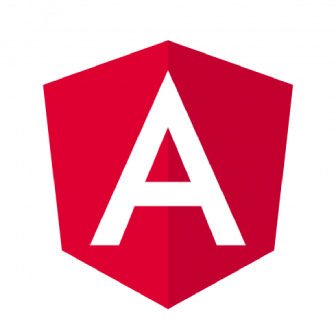A comprehensive and practical course for learning Angular, aimed at becoming professional and experienced developers in the field who can harness the advantages of AngularJS for innovative, efficient, and effective client-side development across various projects and relevant developments in the industry.
AngularJS is an open-source framework based on the JavaScript language, developed by Google. This technology is used by developers to build websites, web applications, desktop, and mobile applications, essentially for developing Single Page Applications (SPAs) on the server side.
Angular was first introduced in 2010, and since then, due to its high efficiency and popularity, various new versions have been created to further enhance it based on market demands. Ongoing maintenance, development of new versions, and improvements are primarily carried out by Google, in addition to a supportive community of developers directly involved in code writing and new versions.
The popularity of Angular began to rise when Google started using it extensively, even by developers not associated with Google. Once they were exposed to its innovative operation and the solutions it provides, adoption was very rapid, leading to widespread use within the international tech developer community. As a result, Angular was integrated into a wide range of the world's most cutting-edge websites and applications.
Advantages of Using Angular
AngularJS offers several key advantages that will make the development process and software operation more efficient and faster:
- Support for Single Page Applications (SPAs): AngularJS allows loading only a specific part of the site based on user requests, without the need for complete site or page reloading. This contributes to faster loading, reduced server load, improved user experience, and more.
- Two-Way Data Binding: Reading data from the database, retrieving information, and updating data on the site are much more efficient and controllable compared to other types of frameworks used in the past.
- Code Reusability: Experienced developers prefer reusing code whenever possible instead of rewriting it. This allows for rapid development, easier maintenance, and more.
- MVC Support: The Model-View-Controller (MVC) method enables simple code separation and the use of specific functions for various tasks and different parts of the site or application.
- Supportive Community: Due to the popularity and the increasing number of developers using Angular for development, you can find help for almost any problem or bug that may arise during the development process. This can greatly ease the development process and speed up problem-solving in projects.
- JavaScript: Angular is written in the popular JavaScript language, which means that many developers with prior experience working with JavaScript can learn the technology much faster. Additionally, using JavaScript for both client-side and server-side development (using NodeJS) is a significant advantage in today's tech landscape, promoting the use of a single language for development. This contributes to its popularity.
Furthermore, Angular is continually evolving, with new versions being released frequently. With each update, more advantages and improvements are introduced to maintain its place and popularity in the market. It's important to stay updated with the latest working methods to successfully integrate with leading tech companies and startups in the industry.
Throughout the Angular course, you will learn about all the advantages of the language and its latest innovations. You'll gain practical and comprehensive experience in developing real and industry-relevant projects, building a diverse portfolio, and accumulating meaningful experience in the field of development.
Common Uses of AngularJS
- Mobile Apps
- Social Networks
- Dynamic applications that frequently update information with real-time data
- Complex websites and applications with a large user base requiring numerous modules
Learning Angular as part of the Full Stack Web Development path: Angular can be learned as a standalone course or as part of a comprehensive training and placement program for website development. In the full path, you will also learn a wide range of relevant technologies and programming languages such as NodeJS, React, MongoDB, JavaScript, and more.
By utilizing Angular and other technologies taught in the course, you can learn and gain extensive practical experience, creating a diverse toolbox that enables a rewarding career path as developers right after completing the studies.
AngularJS Study Consultation
For guidance on your studies and comprehensive information about the training program, please leave your details in the forms attached to this page. A study consultant will get back to you promptly with all the details about the Angular course and the full path of training for Full Stack development.
Who is the Angular Course Suitable For?
- Beginner programmers who want to integrate into the field of web development.
- Those seeking professional transition into the world of web programming.
- Individuals with a basic background in programming who want to enhance their web programming skills.
AngularJS Course Prerequisites
- Basic computer literacy.
- Background or experience in software development using higher-level languages - advantageous, but not mandatory.
- Professional knowledge interview.
Angular Course Structure Description
- The course includes frontal lectures and practical exercises.
- The course duration is approximately 60 academic hours.
- The course includes:
- Learning Angular 7 through exercises and solutions.
- Classroom exercises accompanied by explanations, homework assignments, and solutions on the course website.
- Course booklet, videos, and presentations on the course website.
- Towards the end of the course, each student will complete a practical project that summarizes the acquired knowledge throughout the course.
- Lectures are held once a week in the evening hours.













